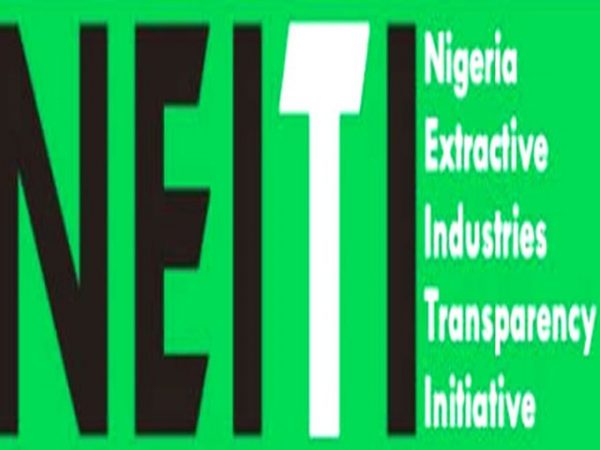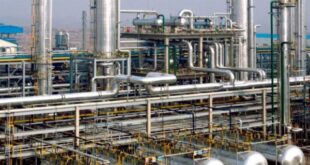 Nigeria lost 54.6 per cent of oil revenue, amounting to $29.7 billion that it may have earn from its sales of crude oil in 2015 if the prices of oil in the international market did not drop from $101.91 that it was in 2014 to $52.16 in 2015, an audit report from the Nigeria Extractive Industries Transparency Initiative (NEITI) has disclosed.
Nigeria lost 54.6 per cent of oil revenue, amounting to $29.7 billion that it may have earn from its sales of crude oil in 2015 if the prices of oil in the international market did not drop from $101.91 that it was in 2014 to $52.16 in 2015, an audit report from the Nigeria Extractive Industries Transparency Initiative (NEITI) has disclosed.
The report, released yesterday in Abuja by NEITI, covered operations in the country’s oil and gas industry for the period of 2015.
It also disclosed that within that period, a total of $597.8 million was taken from the $4.37 billion that was earmarked and remitted into the joint venture (JV) operations cash call account, maintained by the country to fund oil production between it and International Oil Companies (IOCs), and paid to the National Intelligence Agency (NIA), the Nigerian Navy, and a host of others.
It said the $597.8 million expenditure from the JV cash call account was classified as non-cash call items by the Nigerian National Petroleum Corporation (NNPC).

The report, which highlighted a couple of other findings, including the losses recorded by Nigeria from oil theft, irregular product swap arrangements, and transactions the NEITI considered uneconomical, stated. that revenues from sales of oil and gas plunged from $54.5 billion in 2014 to $24.8 billion in 2015.
It however noted that this was despite the country’s overall oil production falling slightly from 798 million barrels (mb) in 2014 to 776mb in 2015.
It explained that as at 2015, the total outstanding revenue owed the country from the sector was $3.7 billion and N80 billion, while losses incurred during the period was $2.2 billion and N60 billion. Unreconciled revenues, it added, amounted to N317 billion.
Speaking on the findings in the report, the Executive Secretary of NEITI, Mr. Waziri Adio said in a statement from NEITI that: “Beyond providing a snapshot of what transpired in 2015, this report reveals money to be recovered, leakages to be blocked, and urgent reforms to be undertaken.”
Adio added that: “The most critical take-away is the need to expedite, expand and sustain reforms in this still critical sector of national life.”
NEITI stated that the 54.6 per cent decline in oil revenues suffered by the country was “due to drastic reduction in the unit price of crude oil in the global market,” despite recording just about a 2.7 per cent fall in oil production.
It attributed the decline in oil production from 798 million barrels in 2014 to 776 million barrels in 2015, to oil theft and militancy, adding however that the country’s gas production rose by 20.23 per cent from 2, 593,090 million standard cubic feet (mmscf) in 2014 to 3, 250, 667 mmscf in 2015.
This, it stated was supported by the combined effect of increased gas utilisation and decline in gas flaring.
It noted that of the 780mb of oil that was lifted in 2015, companies lifted 467mb, while the NNPC lifted 313mb.
“NNPC’s liftings were split almost evenly between federation export and domestic crude allocation, which accounted for 159.4 million barrels and 153.9 million barrels respectively. However, only 8.7 million barrels or 5.6 per cent of crude oil allocated for domestic consumption went to the refineries in 2015 on account of the state of the refineries,” it added.
The NEITI report equally stated that the status of a $16.8 billion dividend paid by the Nigeria Liquefied Natural Gas Limited (NLNG) to the NNPC for the federation over 16 years was still unknown, and thus asked the corporation to clarify the alleged mix-up.
It explained that: “In 2015, the NLNG paid $1.07 billion as dividend, interest and loan repayment to NNPC, broken down as follows: $1.04 billion as dividends, $3.1 million as interests, and $29.1 million as loan repayment. This brings to a total of $16.8 billion NLNG’s payments to NNPC for the period 2000 to 2015. The payments are for the loan grant to NLNG and for the 49 per cent stake that the government holds in the company.
“While NNPC has always confirmed receipt of the payments, it has never shown evidence of remittance to either the federal government or to the Federation Account. NNPC maintains that it has authorisation from the presidency to hold the dividends in trust and utilise as directed by the government. NEITI recommends that NNPC should provide documentary evidence of the authorisation to hold the money in trust and to give account of the expenditure from and the status of the $16.8 billion collected in 16 years.”
As regards crude oil theft and product losses, NEITI said the volume of crude oil declared lost to theft by 13 operators in 2015 was 27.1 million barrels, valued at $1.4 billion, while a subsidiary of the NNPC, the Pipeline and Product Marketing Company (PPMC) also declared loss of crude worth $25 million, to bring the total declared losses to $1.45 billion.
“This brings the established loss to theft from 2011 to 2015 to a total of 113.1 million barrels valued at $11 billion. Also, PPMC declared losing products worth N56.4 billion, broken down as follows: N52 billion for losses on petrol, N3.8 billion for losses on diesel, and N123 million for losses on kerosene. Deferred production on account of sabotage or repairs came to 57 million barrels,” it added.
Coming to the non-cash call deductions the audit highlighted, NEITI explained that from the $597.8 million taken from the $4.37 billion cash call fund, $307.83 million was paid to the NIA and Navy for security, $238 million collected by NNPC’s National Petroleum Investment Management Services (NAPIMS) as administrative charges, $7.2 million for travelling and accommodation, and $4.8 million for consultancy.
It reported that Nigeria recorded a net loss of $723 million from getting refined products through Offshore Processing Arrangement (OPA) during the period, adding that despite its disbandment in November 2015 for being uneconomical, there was an outstanding liability of $498 million by companies contracted under OPA from under-delivery of imported products.
Based on its claims of inefficiencies in the OPA, NEITI recommended that the Direct Sale Direct Purchase (DSDP) arrangement which replaced it should be closely monitored to ensure the country was not losing from its application.
It said the Nigerian Petroleum Development Company (NPDC) was still owing the country the balance of $1.7 billion from its takeover of eight Oil Mining Leases (OMLs) from the Shell JV between 2010 and 2011.
According to NEITI, the report which is its eighth edition, was approved for release by its National Stakeholders Working Group (NSWG) chaired by the Minister for Mines and Steel Development, Dr. Kayode Fayemi, after a Nigerian accounting and audit firm, Haruna Yahaya & Co., selected for the job had submitted it.
Copyright MMS Plus.
All rights reserved. This material, and other digital content on this website, may not be reproduced, published, broadcast, rewritten or redistributed in whole or in part without prior express written permission from KINGS COMMUNICATIONS LIMITED.
 MMS PLUS NG – Maritime, Aviation, Business, Oil and Gas News Online Newspaper with coverage in Maritime, Oil and Gas, Aviation, Power and Energy as well as Financial News
MMS PLUS NG – Maritime, Aviation, Business, Oil and Gas News Online Newspaper with coverage in Maritime, Oil and Gas, Aviation, Power and Energy as well as Financial News









